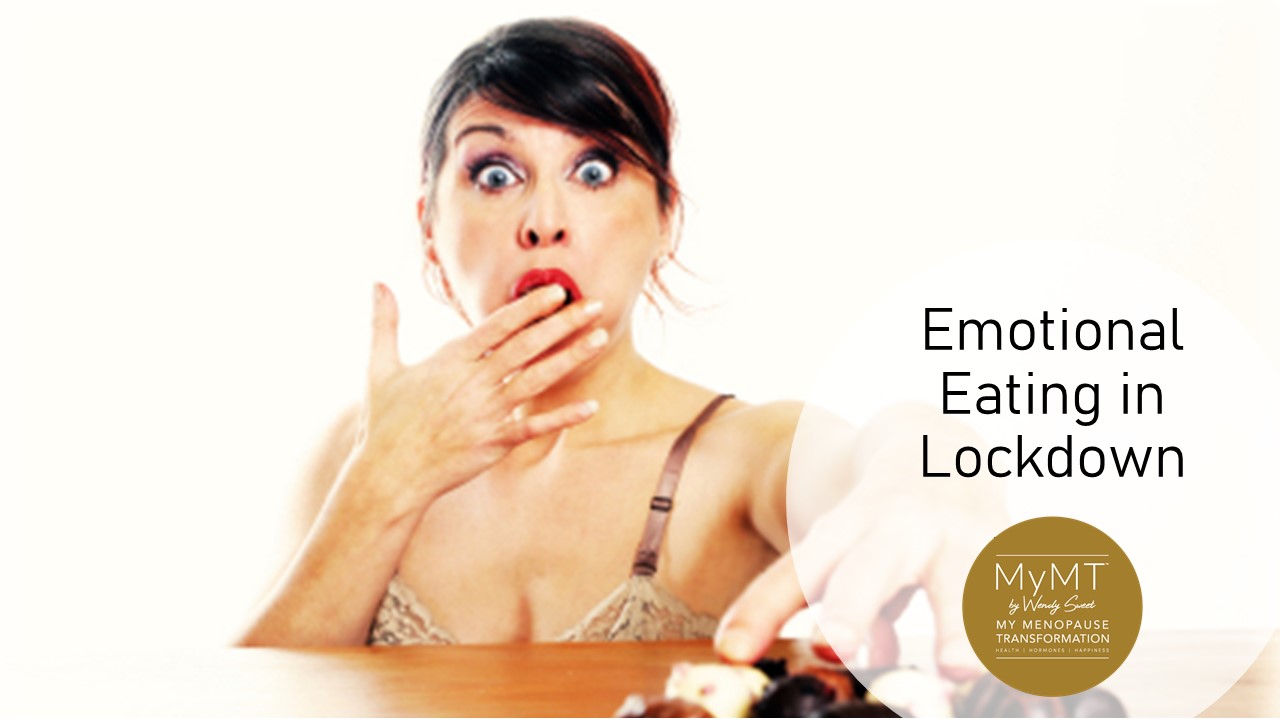‘With many restaurants closed’, states the article in New York Times (April 7th, 2020), ‘shoppers are reaching for frozen pizza, cans of soup and boxes of cereal. In a moment of crisis, shoppers are turning to old stand-bys that they may not have had in years or even decades’.
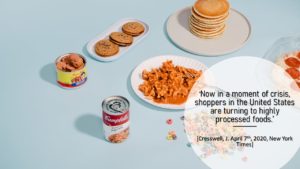
Comfort food for uncertain times. How many boxes of chocolates and bags of crisps did you put in your pantry with your ‘panic buy’? And now that you’re working from home, or aren’t working at all, or you have a household of hungry mouths to feed and your stress levels have gone up AND you aren’t sleeping because you are in menopause, how much of that processed junk food are you eating emotionally? No, you don’t have to answer that. 🙂
Are you an ‘emotional eater’?
- Do you eat sweet or starch foods when you are stressed, anxious, or depressed?
- Do you eat when your hormones are in chaos?
- Have you tried to diet, but find that you crave sweet foods even more?
- When you were younger, did you crave sweet food before your periods?
In a former life, I was a nurse. Some of my fondest memories are the evenings when, as student nurses, my friends and I would come off our shift after 11pm and go to the small kitchen in the Nurses Home, where we lived back then. In this narrow kitchen, we would sit around the table, eating toast, butter and jam and drinking hot Milo. As our chatter increased, the more we would eat. Some nights we would demolish 2-3 loaves of bread! We weren’t actually hungry either. It was just that we were ‘wired and tired’ from our respective tasks looking after patients in busy wards filled to the brim. I don’t think any of us were aware that we were eating so much white bread! And we certainly didn’t give it a thought that we were using comfort food to ‘de-stress’ and therefore, eating emotionally. Unbeknowst to us, were also stacking on the ’empty calories’.
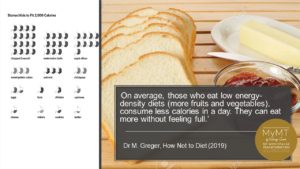
Is this what you do when you feel stressed and tired as well? You know, eat unconciously?
If you do, then if you are in your menopause transition, I’m not surprised. The more stressed we feel and the less sleep we get, the more these habits become hard to break. Not only because you’re in menopause, but because you are also in lock-down. The pantry and fridge are in your sight all day, every day.
A couple of months ago, an article about the dietary habits of Canadian female nurses arrived in my email in-box. With lots of nurses on my programmes, I read it with interest and that’s what triggered my memory of my younger-self as a student nurse, scoffing down toast and jam after a busy shift on the wards. This study reminded me of our eating behaviours when we are feeling over-whelmed with what is going on in our lives.
The study is an important one and whilst we are all in lock-down, I wanted to tell you about it! It set out to explore whether changing cardio-metabolic and psychological health in these nurses was linked to their dietary behaviour during their shifts. It was. As the study authors mentioned,
“Nurses work in highly stressful environments and despite high medical literacy, they are not protected from cardiovascular disease in mid-life. This emphasizes the need for strategies to implement healthy dietary behaviours, particularly among those who do shift-work.” [Terada, Mistura et al, 2019]
The findings suggest that frequent snacking and large day-to-day energy intake variablity were linked with higher cardio-metabolic changes and worsening psychological health in female nurses. The majority of snacks consumed by
nurses (70%) were unhealthy snacks (e.g., chocolate and chips), and higher snacking frequency was associated with a greater percent body fat and worse mood-tension and anger.
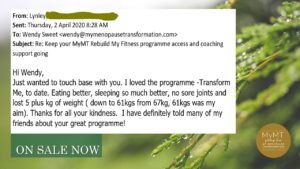
We can all learn a lot from this study during lock-down can’t we? Especially as it’s well known that fatigue from not sleeping well, anxiety and stress from all that’s going on in our lives at the moment, poor liver function and a condition called oestrogen dominance which is prevalent in menopause, all contribute to our eating habits during mid-life. I know this, because I’ve been there too.
There are a few nurses on my 12 week weight loss programme whom I’ve sent the Canadian study to – especially those who are working in high-stress environments during the Covid-19 crisis. I want them to understand that regulating their snacking behaviour during work time when their stress levels are highest, is important. Not only for their weight management, but also for their cardiac health.
In the MyMT 12 week Transform Me weight loss programme I have a handout for women about emotional eating. It’s really important that they know what this is and how it affects their dietary behaviour and nutritional intake. Many women already know that pre-menstrually they have a change in eating behaviour, but with additional stress and fatigue from not sleeping in menopause, emotional eating behaviour runs the risk of becoming worse.
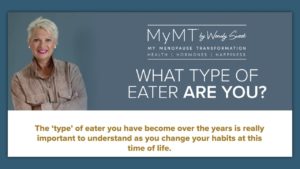
What is Emotional Eating?
This is a term that is used to describe people who eat uncontrollably when they feel stressed, hassled, upset, or feeling bad about something that has gone wrong in their lives. For women in mid-life, this term comes into its own because these are all situations when many women eat more than they usually would. They are eating due to their emotional state at the time.
However, part of the problem with our eating behaviours, is that when women are entering peri-menopause or menopause, the emotional eating can quickly become habitual as symptoms can go on for years. Not sleeping, feeling anxious and experiencing hot flushes and sore joints, means that many of us end up eating emotionally because we feel exhausted and frustrated! Then, before you know it the weight stacks on and you have a ‘new normal’ of metabolism which can quickly change your health as you move through menopause. The researchers in Canada proved this with those nurses I talked about too.

If you relate to emotional eating, then it’s all about recognising your ‘triggers’ and replacing the old habit with new, healthier habits.
Triggers are what shape our behaviour. We all know that certain situations can provoke any one of us into behaving differently, especially when it comes to food behaviour. Biochemistry and hormones drive our behaviour and in menopause, both factors are usually out of balance. No wonder peri-menopausal and post-menopausal women have no energy for living the life they want to! It’s why as part of my Masters degree, I studied Behaviour-Change and have an entire module about this in the MyMT programmes.
The ‘type’ of eater you have become over the years is really important to understand as you change your habits at this time of life. This is especially true if you are already over-weight and have stacked on belly fat after the birth of your children or during your peri-menopause transition. And wherever you are in the world, being in lock-down, also enables you to slow down and stop and think about your association with food and your eating habits.
Feeling tired, stressed and/or always being busy also means that your body is
Now that we are all in lock-down, here are my tips to help you:
- Become Aware: Recognising how and why you eat is the first step in changing our dietary behaviour. Go on think about it. What are the situations and how are you feeling when you eat uncontrollably?
- Take a breath. Sounds simple I know, but if you are feeling stressed, angry or you are busy and rushing around and about to grab for the chocolate bar, part of the reason for this is because your heart rate, blood pressure and brain are experiencing increased activity. They are in ‘fight or flight’ mode. When this happens our brain, liver and muscles crave sugar. But the other thing is that our vagus nerve which supplies our gut is ‘on alert’ as well. This means that you don’t absorb nutrients very well when you are eating when you are feeling stressed. So stop. Breathe deep and slow down. This is really powerful to do, but takes practice.

- Delay and Drink Water. We all know that delay tactics work don’t we? But do we really do this? If you’re about to eat that bag of chips that happen to be lying on the bench or you are baking or cooking and continually eating from the bowl, then fill a glass with water and drink this instead.

- Plan and prepare. One of the hardest things to do when we emotionally eat, is to turn away from sugary, processed, fat-filled snacks. The obvious thing to do is to not buy them in the first place, but for many mothers who have family members this isn’t as easy as it sounds. So, one of the most important things to do is to plan to shop for foods that are healthier for you – and these are mainly fruits and vegetables. Carrot sticks and hummus, Celery and peanut butter, Apples, Bananas and even Nuts and Raisons, Cucumber etc. Simple, readily prepared snacks that boost your nutrient intake and energy without stacking on too many calories. Adding some plant protein is also filling and fibre helps to lower the glycemic rating of foods so you don’t spike your blood sugar levels and insulin response.
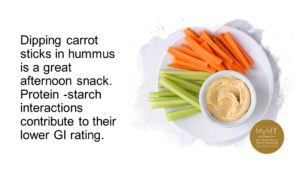
- Use daily PROMPTS and REMINDERS.
- Bounce back from FAILURE. Yes, we all get off the rails now and then, but this doesn’t mean that you can’t bounce back and start all over again. I often talk about the US Weight Loss Registry of ‘successful’ weight loss subjects. Those who ‘bounced back from failure’ consistently had the most success with their long-term weight loss.
- Sleep all Night. It’s not rocket-science I know, but this is where we differ during menopause. We feel tired, grumpy and run-down because we are consistenly waking up when we should be sleeping. I know this, I’ve been there too and it’s why getting a good night’s sleep is the most important factor ahead of nutrition and exercise in the MyMT programmes. When we don’t sleep, we often make the wrong choices with our diet and our dietary behaviour.

Managing how we navigate working from home or working on the front-line if you are an ‘essential worker’ from a dietary perspective matters. With so many fresh-food outlets closed, it’s easy to snack on whatever you can find in the pantry or in the food-machine at work, but you mustn’t! There’s never been a more important time to focus on healthy snacks that don’t stack on the calories.
It’s why I loved this email from Clare. As someone who is responsible for the mental health support for thousands of NHS workers at the moment, she has never been busier! There is a lot of chaos and stress in her working life right now and as someone who has just joined the MyMT Transform Me programme, it’s my privilege to help her at this time.
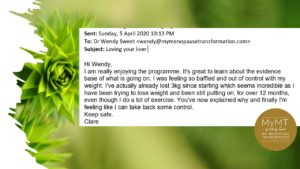
If you have been thinking about coming on board into the MyMT™ community, then I would love to support you over the next 12 weeks. Especially if you are feeling stressed, tired and over-whelmed with all that is going on and you want to lose your menopause weight and better manage your health during this time.
Your online self-learning programme is ready and waiting for you now and for the first time ever, I have taken NZ$100 off the price. I know that these are tough times for many of you. This makes it NZ$199 instead of NZ$299 [AUS$197 or UK£97]. Monthly payments are available and you use the promo code ATHOME20 when you purchase.
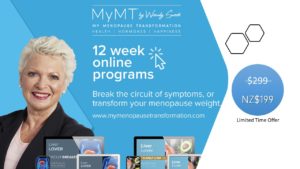
Dr Wendy Sweet, PhD/ MyMT Founder & Coach/ Member: Australasian Society of Lifestyle Medicine.
References:
Duhigg, C. (2012). The power of habit: Why we do what we do and how to change. Random House Group: London, UK
Greger, M. (2019). How not to diet. Flatiron Books: New York
Tarada T., Mistura, M., Tulloch, H. Pipe, A., & Reed, J. (2019). Dietary Behaviour Is Associated with Cardiometabolic and Psychological Risk Indicators in Female Hospital Nurses – A Post-Hoc, Cross-Sectional Study. Nutrients, 2054; 1-12. doi:10.3390/nu11092054
